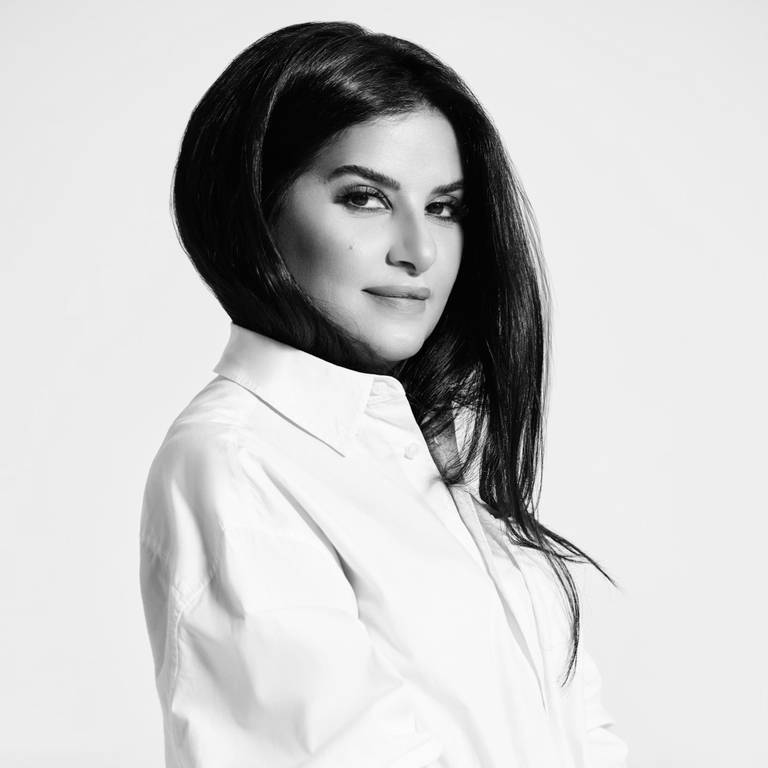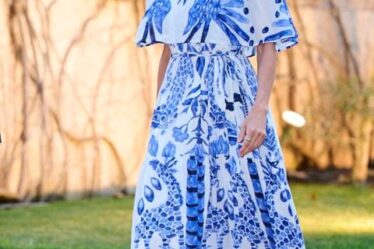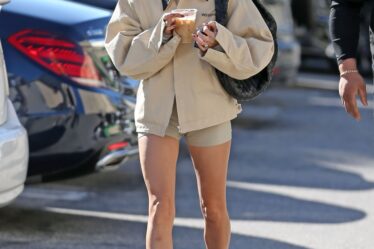
In recent years, the Gulf Cooperation Council (GCC) — a region that consists of Bahrain, Kuwait, Oman, Qatar, Saudi Arabia and the United Arab Emirates — has drawn increasing attention from the global fashion industry, media outlets and consumers alike.
Qatar’s hosting of the FIFA World Cup 2022 led to an influx of tourists and flurry of activity from luxury brands, like the opening of Printemps Doha, and Dior and Louis Vuitton’s investment in boutiques in Qatar Duty Free. In 2021, the UAE’s Dubai hosted the first world expo in the Middle East, with the likes of Chanel and Armani holding shows there.
Recognising an opportunity to return the GCC’s Kuwait to the international fashion map, Zainab Abdulrazzaq, founder of fashion and beauty publication 3oud.com, launched Oud Fashion Talks (OFT) in May 2022.
The inaugural event — a black tie dinner, exhibition and series of talks at Kuwait’s Sheikh Jaber Al-Ahmad Cultural Centre — celebrated and explored the industry’s future in Kuwait and the Middle East, and attracted international and local fashion editors, designers and retailers to the talks. Oud Fashion Talks welcomed BoF’s Imran Amed, Elie Saab Jr, Al-Ostoura’s Najla Maatouk and former Harper’s Bazaar Arabia editor, Louise Nichol, among others, on stage.
Indeed, the GCC saw $2.9 billion in total luxury fashion sales in 2021, with Kuwait accounting for 15 percent of the regional market, according to Bain & Co. Mordor Intelligence also projects a market growth for the luxury goods sector in the Middle East and North Africa (MENA) region at a CAGR of 8.5 percent between 2022 and 2025.
Now, BoF sits down with Oud’s Zainab Abdulrazzaq, to learn her reflections of the first edition of Oud Fashion Talks, her views on the future of fashion in the region, and the opportunities that lie ahead as she prepares for the second iteration of the event.
Why is Oud Fashion Talks important in the positioning of Kuwait in the international fashion industry?
It’s time for Kuwait now to be a part of the conversation, to be a major player in the fashion industry, and I believe Kuwait has all the elements to be a part of the international fashion community. But it is important to build the right structure, to adopt the right creative talent and build them up internationally. So, when we started planning Oud Fashion Talks, we did so with a vision to reposition Kuwait on the map and the fashion scene, especially in the GCC but also worldwide.
The Kuwaiti consumer has the know-how and is daring. We are also open to Western countries and their style. Kuwait is a diverse country with many nationalities, which has opened up a creative community.
What learnings from the first iteration of OFT are inspiring its evolution?
Through Oud Fashion Talks, I came to realise that we had so many designers and creatives in Kuwait, and that the private sector is very supportive of this industry. Often, for any project, the number one challenge is securing financial partners, but for us, that was the easiest part of organising the event.
Previously, the government in Kuwait didn’t recognise how important fashion was for the economy or for the country itself, for branding and promoting the country. I believe it has helped to open their eyes to the potential of Kuwaiti fashion industry. I think they care about this more, now that we have brought awareness to it.
Previously, the challenge was more internal […] and now we have encouraged more of a national awareness, we are looking for greater international exposure.
We didn’t think that the event was going to be as successful as it was — we didn’t see that coming. It has put us under more pressure for next year, but we want to improve for our next iteration. The event itself will be longer — previously, it lasted two days with a gala and the panel discussions the following day. I believe we need to extend it to three days by adding more workshops.
What will the focus be for next year’s talks and celebration?
We want to focus more on bringing awareness to the Kuwaiti fashion industry, how important it is to this country and its benefits to the economy itself.
We are open to not only featuring content about fashion but also jewellery and accessories. We want international designers to share their stories, like in the first edition with Elie Saab Jr. sharing his story as a successful regional designer — someone our design community can aspire to.
The first edition was also more about business, and we received a lot of demand from young Kuwaiti photographers who want to learn and receive access to the industry too, so we are looking to host a workshop with photographers too. We want to have retailers speaking again, and to have more digital expertise as it is now so important to this business.
We also want to create a fund to support local designers in Kuwait — meaning any designer that lives in Kuwait, regardless of their nationality.
On our newly launched website, oudfashiontalks.com, we have a section where designers can apply and send us what they have. We are looking to host an exhibition for designers like we did last year, to open up their work to international editors and potential investors.
What is your hope for the future of fashion in Kuwait and the wider GCC, and what role does OFT play in supporting that?
Previously, the challenge was more internal — I wanted the Kuwaiti system to change, and now we have encouraged more of a national awareness with the event itself, we are looking for greater international exposure.
I see huge potential. I can’t understand why there is still this West and Middle East consumer division. We want to build a community to support local talents.
I realised it was time for me to give back and, if possible, inspire change in the system. We have a lot of creativity and there is no reason why we are not there yet. But I don’t believe that one initiative will be enough.
The Oud Fashion Talks event will take place between the 10th and 12th of May 2023.
This is a sponsored feature paid for by Oud Fashion Talks as part of a BoF partnership.



